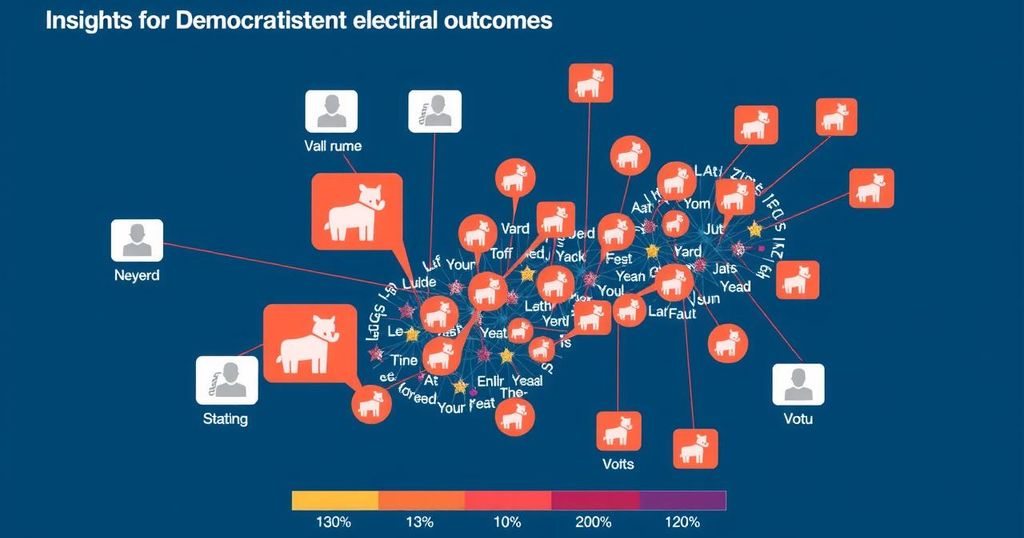Lessons for the Democratic Party Following Electoral Defeats

The Democratic Party must learn from recent electoral losses by addressing voter grievances, refining communication strategies, and maintaining core progressive values. There is a call for clearer messaging and outreach to working-class concerns while ensuring inclusivity among demographics that may feel neglected. Engaging effectively with diverse voter bases is essential for reclaiming electoral support.
In light of recent electoral defeats, it is imperative for the Democratic Party to reflect on its strategies and adapt for future success. Observers emphasize the need for the party to recognize the grievances of disaffected voters rather than assigning blame internally. To achieve this, Democrats must identify the reasons behind their electoral losses and respond with targeted programs that resonate with the desires of these voters. Moreover, replicating effective communication campaigns, similar to those employed by the Republican Party, is crucial for revitalizing voter engagement. Moderates express concern that the Democrats’ pivot to more centrist positions may alienate certain voter demographics who feel disconnected from current party ideals. Maintaining core values, such as equity and respect towards marginalized communities, while also appealing to a broader audience poses a significant challenge. The fear remains that abandoning progressive ideals could lead to further disenfranchisement of committed party members. Critical voices have pointed out that the Democratic leadership needs to articulate clear and concise positions on key issues rather than presenting complex narratives that confuse potential supporters. Effective communication is paramount to counteract the Republicans’ often simplified messaging that resonates with the public. To regain the ground lost in prior elections, the Democratic Party is urged to engage with its base by directly addressing the needs of traditionally supportive populations, without dismissing their concerns. As Democrats navigate this challenging political landscape, it is essential to recognize that neglecting the voices of working-class voters, especially in battleground regions, could further erode support. The party must evolve while remaining grounded in its foundational principles, ensuring inclusivity without compromising its commitment to social justice and equality. Achieving balance is crucial; understanding and respecting the complexities of voter sentiments will be vital in restoring faith and support for the Democratic Party moving forward.
Following significant electoral defeats, the Democratic Party faces mounting pressure to reevaluate its strategies and outreach methods. The party has been criticized for failing to address the concerns of key voter demographics, particularly those in rural areas and the working-class segments. Insights from various contributors argue that a lack of clear messaging and an overemphasis on elite concerns have contributed to this disconnect, resulting in a diminished support base. Effective communication and addressing the concerns of all constituents, including disenfranchised voters, are deemed essential for future electoral success.
In conclusion, the Democratic Party must engage in introspection and strategic recalibration to recover from recent electoral setbacks. By actively listening to the concerns of diverse voter groups and ensuring that its messaging is both clear and empathetic, the party can reclaim support from those who feel left out. Balancing progressive ideals with broader appeal remains a critical challenge. Effective communication strategies will be instrumental in solidifying the party’s future position within the political landscape.
Original Source: www.nytimes.com







